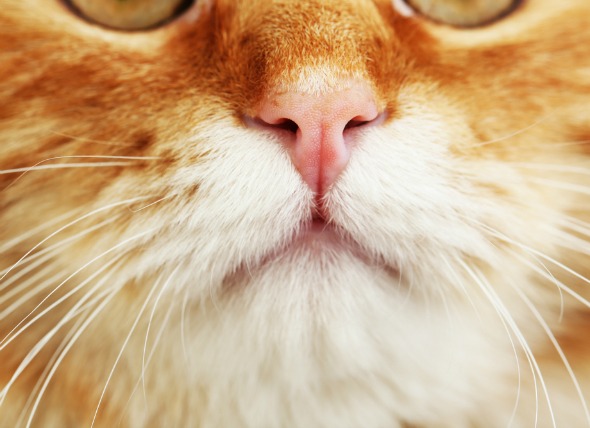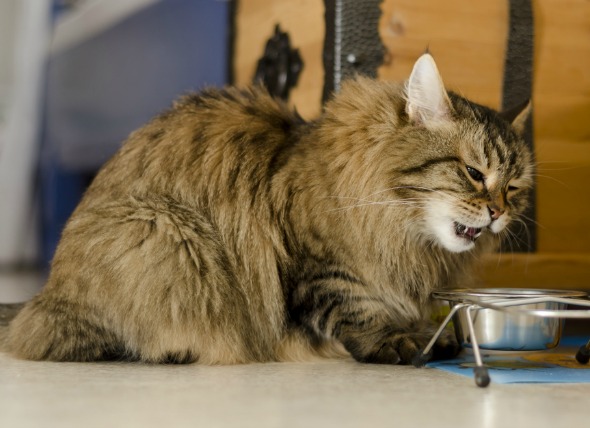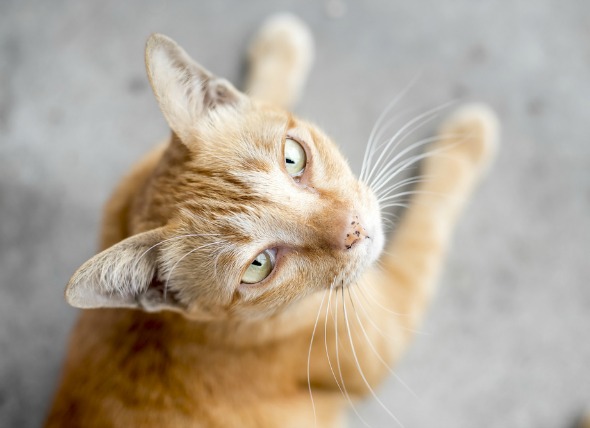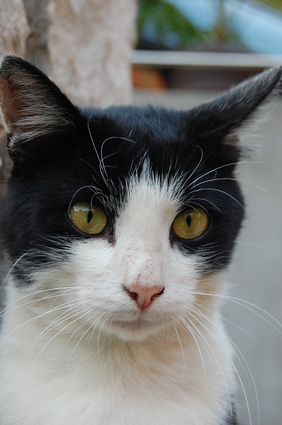
So how do you decide whether to get a young animal or a more seasoned veteran? What kind of kitty is going to suit your needs and lifestyle best, and vice versa? And what are the benefits and drawbacks of each age group? These are important questions to ask yourself, before actually adopting your new fur ball.
Kittens are the bomb - painfully adorable with those big, innocent eyes looking up to you with such trust and openness. They meow in the cutest way, and do the darnest things that make you go: ‘Awww!’

But they do come with a series of challenges. They still need a lot of attention and guidance to learn the rules. They need stimulation in order to develop into a well-balanced kitty. They are filled with energy, and still fascinated by curtain- , toilet paper- and couch climbing. In short - you’ll be raising a youngster, like you would kids. So be prepared to do the necessary research and invest the necessary time and effort to make sure your kitty doesn’t run into trouble later down the road. You’ll have to housebreak them and be strict and consistent on the rules so they do not turn into spoiled brats. Keeping up with their tireless energy and inquisitive minds can be a fun challenge or a chore, depending on your point of view.
One smart thing to do is to adopt two at once, so they can teach each other and tire each other out - unless you have kids that have endless energy themselves to play with the kittens all day and the time to supervise.
Another thing to consider is that a kitten is a barrel of potential and a blank slate - you don’t really know what you’re going to get in the end, but you do get a say along the way. The truth, however, is that you do not know if kitty will be a lap cat, a social cat, an energetic playful cat or a hide-a-cat until they are about a year old. You’ll have to take them as they come and love them for who they will be.
Lastly, their immune system is…fragile, to say the least. With the series of vaccinations needed in the first year, the de-worming and the spaying and neutering, many of the typical costs associated with veterinarians are going to be for you that first year.
Adopting a young adult has many of the benefits of a kitten - they are still playful, malleable and less set in their ways. The added bonus is that you already get a good idea of what their final personality will be like. It will be easier to gauge if they are a lap cat, or an energetic hunter.They’re not as energetic nor need as much guidance as kittens, yet are still up for game time and still do the cutest stunts. In other words, they are still a walking entertainment center.
On top of it all, they are usually already spayed or neutered, which removes a significant cost to you as the owner. You won’t have to deal with cats going into heat or spraying due to their hormones kicking in. Often they are still quite flexible with regards to being placed with other cats, as long as it is done properly. And many of them are easier and cheaper to get at your local shelter as they tend to be less popular than kittens.

On the other hand, they do have a history. And with that history comes baggage - especially if they’ve been through something stressful such as being placed in a shelter. As adaptable and resilient as they are due to their youth, that history will have left its mark. That however doesn’t have to be to their detriment. It can often highlight interesting quirks in their specific personality, and give you clues as what kitty prefers in life, making it easier to gauge what their needs are than what a kitten’s will be in the future. Make sure to get their full history, both medical and situational from the shelter or previous owners to anticipate anything specific to them, and see if you can get familiar food and litter, as well as a blanket when you do decide to take them home to make the transition easier - something a kitten will have significantly less problems with.
 Getting a fully grown adult from the shelter is an amazing gift to the animal. Their chances of getting adopted are often zero to none, unless they are of a specific breed. And this is in particular true during kitten season - from April to November. Their chances of getting euthanised are therefore significantly higher.
Getting a fully grown adult from the shelter is an amazing gift to the animal. Their chances of getting adopted are often zero to none, unless they are of a specific breed. And this is in particular true during kitten season - from April to November. Their chances of getting euthanised are therefore significantly higher.
And yet they have a lot to offer. They are in their prime, and as such will need a vet a lot less than any kitten or young adult or elderly cat. Strong, healthy, with a clearly developed personality and sense of self, these can be some of the most grateful cats you’ve ever met. Sure, those traits also come with the trade-off of often needing time to adjust to change, and perhaps some baggage due to their history but given the right approach, this is peanuts compared to the benefits.
They no longer need the guidance that a kitten does, tend to figure out the rules of your household rather quickly and have their own life. Their energy levels are more stable than a kitten’s or a young adult’s, and they have usually learned how to entertain themselves. This makes them perfect for those busy people who just want to come home to someone cuddly in the evening.
 Elderly cats are often the least wanted animals in a shelter. Granted, they come with higher health bills for dental care, blood testing and general upkeep in medication - much like a kitten, really - but they also make for the most loyal of pets.
Elderly cats are often the least wanted animals in a shelter. Granted, they come with higher health bills for dental care, blood testing and general upkeep in medication - much like a kitten, really - but they also make for the most loyal of pets.
Quiet, relaxed, cuddly and yet not overbearing, they tend to be the perfect animal for elderly people, with minimal fuss in raising them or having to anticipate any shenanigans. These animals are also perfect for people who aren’t willing to make an 18+ years commitment just yet and want to ease into the pet-having business. As long as you’re good with having a good relationship with your vet and the occasional extra cost, this is the perfect choice for you - not to mention for your animal.
There is nothing sadder than an elderly cat, waiting to be put down or live the rest of their golden years in a shelter, and yet it is often these magnificent creatures that end up there without any hope of a better future. Giving them a quiet place to live out the rest of their wise years can be an immensely satisfying thing to do.
In the end, it is important you take the time to consider which cat would suit your lifestyle better. So do not choose your animal out of pity or because you like the novelty and adorableness they bring with - choose it because you can offer them what they need - and allow them to do the same for you. After all, this is a partnership between two living beings who will be sharing close quarters together for what hopefully will be a long time, enriching each others lives.
So, give it its due consideration.
 Runny Nose in Cats
Nasal Discharge in Cats
Normal
0
fa
Runny Nose in Cats
Nasal Discharge in Cats
Normal
0
fa
 Swallowing Difficulties in Cats
Dysphagia in Cats
There are a number of condition
Swallowing Difficulties in Cats
Dysphagia in Cats
There are a number of condition
 Stomach Infection with Helicobacter in Cats
Helicobacter Infection in Cats
The He
Stomach Infection with Helicobacter in Cats
Helicobacter Infection in Cats
The He
 Skin Bumps (Papulonodular Dermatoses) Cats
Papulonodular Dermatoses in Cats
Bumps that are f
Skin Bumps (Papulonodular Dermatoses) Cats
Papulonodular Dermatoses in Cats
Bumps that are f
 Male Cat Behavior
Male Cat Behavior
Male Cat Behavior. E
Male Cat Behavior
Male Cat Behavior
Male Cat Behavior. E
Copyright © 2005-2016 Pet Information All Rights Reserved
Contact us: www162date@outlook.com